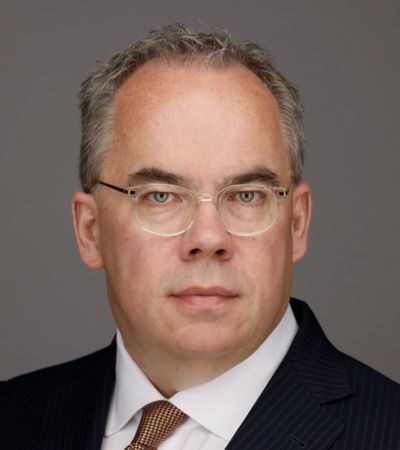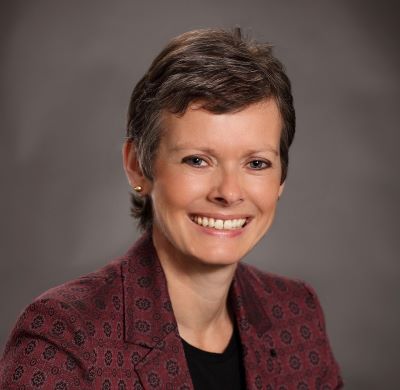Government faces widening gap between policymakers and those they serve
 There is a growing divide in Canada between policymakers and citizens and other stakeholders they serve, says national award-winning journalist and author Paul Wells (photo at right).
There is a growing divide in Canada between policymakers and citizens and other stakeholders they serve, says national award-winning journalist and author Paul Wells (photo at right).
The reasons for the rift include a devalued public service, government inability to implement policies, and Ottawa’s obsession with constant social media messaging about what a good job government is doing – instead of actually listening to stakeholders, he said.
“It’s an increasing sense that there’s an isolation between public servants and the political class, and the stakeholders and the broader citizenship,” Wells said. “Governments are increasingly operating without direct reference to social inputs and the needs of the clients, and increasingly flying blind.”
Wells made the comments during an interview with veteran journalist Michael Hainsworth, former business reporter for CTV Toronto. The interview was presented as a podcast and video by the C. D. Howe Institute.
Wells said all the elected class in Canada wants now is “faithful implementation” of policy. “The classic model of public service advising government, in pursuit of goals that are defined by social consensus, has fault lines running through it several ways.”
The public service’s institutional memory is fading, as increasingly people who make a career in the public service spend less of their career within one public institution, he said.
Wells noted that in federal departments responsible for areas such as global affairs and international trade and development, more and more often these departments have been run by deputy ministers who don’t come from the foreign service, so they lack an international perspective and expertise obtained all the way through their career. Instead, public servants get shuffled from department to department.
He said he had written a piece praising a senior public servant and the minister of that particular department told Wells: “Don’t do that because they’ll get moved. If someone’s good in this government, they get moved out of what they were good at and moved into something harder and less rewarding.”
Wells pointed out that public servants used to be the in-house “think-tank” for the government. But since the Jean Chretien Liberal government in the 1990s, politicians in order to get elected produce detailed platforms with hundreds of promises that they expect the public service to implement, he said.
There is still some room for the public service to decide how to implement the promises and to push back on those that are going to be hard to implement, he added. “But basically they are tasked with implementing, rather than with brainstorming.”
Wells also criticized what he called the “constant need” for politicians to be pushing out on social media, through government-sourced communications such as direct email, a positive message about government action.
“Every day, you have to be telling a story about what you did today that proves you are moving briskly toward noble goals. Anything that distracts from that message-building function is seen as politically dangerous by the partisan overloads of the public service.”
Wells said Justin Trudeau’s Liberal government had promised to unshackle the bureaucracy and allow scientists and other experts and public servants to speak publicly on such topics as climate change and foreign affairs, in contrast to Stephen Harper’s Conservative government which was accused of “muzzling” scientists. [Wells is the author of the national bestseller, The Longer I’m Prime Minister: Stephen Harper and Canada, 2006-, which won three major book awards for non-fiction].
But the Liberal government quickly discovered they don’t like it when public servants speak publicly, Wells said. “Even if a public servant says or does something that isn’t particularly embarrassing, it’s still off-message. And message is absolutely everything in politics today.”
Government focused on messaging rather than implementing policy
When it comes to being on message and brand, Research Money has noted that former talk-show host Supriya Dwivedi joined the Prime Minister’s Office earlier this month as a policy advisor. Last November, the PMO brought in Max Valiquette, who has years of experience in working for various brands, advertising and marketing, as executive communications director. Valiquette’s LinkedIn profile at the time said he’s “one of the country’s best known marketing leaders, strategists and presenters . . . focusing on brand building, marketing, innovation, and understanding Millennials and Generation Z.”
As for ensuring the public service’s expertise and experience, garnered by spending a long time in one public institution, earlier this month the PMO announced that Nathalie Drouin is taking on the additional role of security and intelligence advisor to the Trudeau government. Drouin, who has been deputy clerk of the Privy Council since 2021, has no obvious security experience in her background. None of her predecessors in the security and intelligence advisor role for the Trudeau government has lasted longer than two years in the job.
Wells said when he started his career as a political journalist some 30 years ago, a lot of the intellectual energy in Ottawa came from public servants who had autonomy “and a career path that allowed them to build up source credibility within the machine.” Also, two or three of the most important think tanks of the day produced analytical papers that “landed with a big thud and really galvanized and changed thinking within Ottawa.”
“Both of those wells of lore and knowledge and wisdom have been devalued in the intervening years, to the benefit of private consulting firms which work on contract, move from problem area to problem area based on the whims of their clients, and have the luxury of not being around when whatever [advice] they come up with turns out not to work.”
It is more lucrative today for a creative, agile, entrepreneurial intellect in Ottawa to sell those abilities as a consultant than it is to build a life in the public service, Wells said. “It’s not an intellectually rewarding environment and you’re not going to get rich.”
According to research by Carleton University’s School of Public Policy and Administration, the federal government spent more than $15 billion on consultant contracts across core public service departments and agencies (excluding the Department of National Defense, commissions, review committees, and Offices of Parliament) in the 2021-2022 fiscal year. Such spending amounted to $10.5 billion when the Liberals took office in 2015.
The cost of management consulting, which is typically for advice, has grown the most in recent years and surpassed $811 million in fiscal year 2021-2022, according to Public Accounts of Canada data. This was nearly double the $416 million spent six years earlier.
Critics have said the growth of government-paid consulting services raises questions about whether the public service has lost its capacity to provide policy advice, or if public servants’ advice isn’t sought or trusted.
Wells said numerous reports by everyone from Canada’s Environment Commissioner to the Auditor General have examined various federal government initiatives and essentially said, “Gee, the announcement was great, but there was no follow-up or no plan for implementation and no measurement of results.”
People who in their own lives have a long-term experience with a problem – housing, for example – “find themselves beset with governments that are obsessed with a fondness for the announcement,” he said. “It’s not just a lack of interest [by government] in implementation, but really a lack of ability to implement.”
Urgent need for government to regain “listening function”
Wells’s perspective on the gap between policymakers and those they serve is reinforced by the findings of this year’s annual Edelman Trust Barometer global report. The Trust Barometer, which reports on 28 countries, found that, globally, government was seen by respondents as far less competent and ethical than business.
Government was distrusted in 17 of the 28 countries surveyed, including in Canada where only 49 per cent of respondents said they trusted government. Respondents worldwide said government leaders are the least trusted among societal leaders that include scientists, CEOs and journalists.
Asked by Wainwright what the solution is to closing the gap between policymakers and stakeholders, Wells said one thing that has been undervalued during the last 20 years, since the rise of social media, is the “listening function. It’s the ability to really consider the possibility that we might be wrong.”
“Any government that embarks on a large project tends to plug its ears, because it’s so obsessed with pushing out its own message about what a great job it’s doing that it can’t hear stakeholder feedback very well.”
Every government and all political teams need a built-in “red team” function providing critical feedback, along with a function for listening to and providing feedback from stakeholders, Wells said.
This shouldn’t be a formal, elaborate consultation with ministers going across the country, “pretending to listen,” he added. “Because what we’ve seen is that a lot of those consultations, those are actually part of the theatre of politics and there’s not a lot of real listening going on.”
Instead, he said there should be a much lower-key, less ostentatious listening effort, with people in every political office whose job is to gather and collect stakeholder feedback on whatever the government is doing. That way the feedback can be integrated into decision making constantly throughout the process, “and not simply when everything goes off the rails.”
As for government’s constant building and delivering of good-news messages, Wells said it’s time for people to understand “that the emperor has no clothes. That function is badly over-rated.” Government thinks that if it coordinates its message, it’s not going to get into trouble, he said. “And what we’ve seen is, you get into trouble anyway.”
For example, everyone who followed the file on the federal government’s Bill C-18, the media bill that led to a standoff with Google and Facebook, knew the proposed legislation was going to be problematic long before it was, Wells said.
“The government was so busy telling everyone they had a great law, nobody with power in standing in the process was there to ask whether it was a good one and whether it would work and whether it would achieve the desired ends.”
Despite the gap between policymakers and stakeholders, Wells stressed that the good things that have happened in Canadian society during the last several years were the results of concerted efforts of public servants led by politicians.
For example, Canada was more able to ride out the COVID crisis than just about any comparable country, he said, because generations of governments had been so fiscally prudent that the current Liberal government was able to pay people to stay home and that saved large numbers of thousands of lives.
Another example is the NAFTA trade agreement, which was the centrepiece of a very polarizing election in 1988. But the agreement is now so central to Canada’s economic life that it became an all-hands-on-deck effort by Canadian politicians and public servants to save it when “an essentially irrational U.S. president (Donald Trump) couldn’t decide whether he wanted to rip it up,” Wells said.
Wells also pointed to the construction of a new generation of Canadian universities after 1970 and the renewal of those universities around 2000, that was the result “of two waves of public servants who saw the usefulness of free enquiry and free exchange of ideas.”
“So there’s still plenty of room for good people to contribute, and Lord knows we need good people,” Wells said. “But we also need to notice when the system is producing perverse incentives and imperfect outcomes and say those things out loud.”
Paul Wells joined the Munk School of Global Affairs & Public Policy as the inaugural journalist fellow-in-residence for the 2022-23 year. In this newly created role, he hosted a new podcast, The Paul Wells Show, in collaboration with the Munk School, Antica Productions, and the National Arts Centre. The podcast’s episodes are available here.
Wells also will be a keynote speaker at Research Money’s 23rd annual conference April 24-25, 2024, in Ottawa.
R$
Events For Leaders in
Science, Tech, Innovation, and Policy
Discuss and learn from those in the know at our virtual and in-person events.
See Upcoming Events
You have 0 free articles remaining.
Don't miss out - start your free trial today.
Start your FREE trial Already a member? Log in
By using this website, you agree to our use of cookies. We use cookies to provide you with a great experience and to help our website run effectively in accordance with our Privacy Policy and Terms of Service.



.png)

